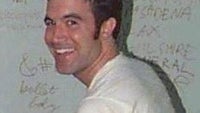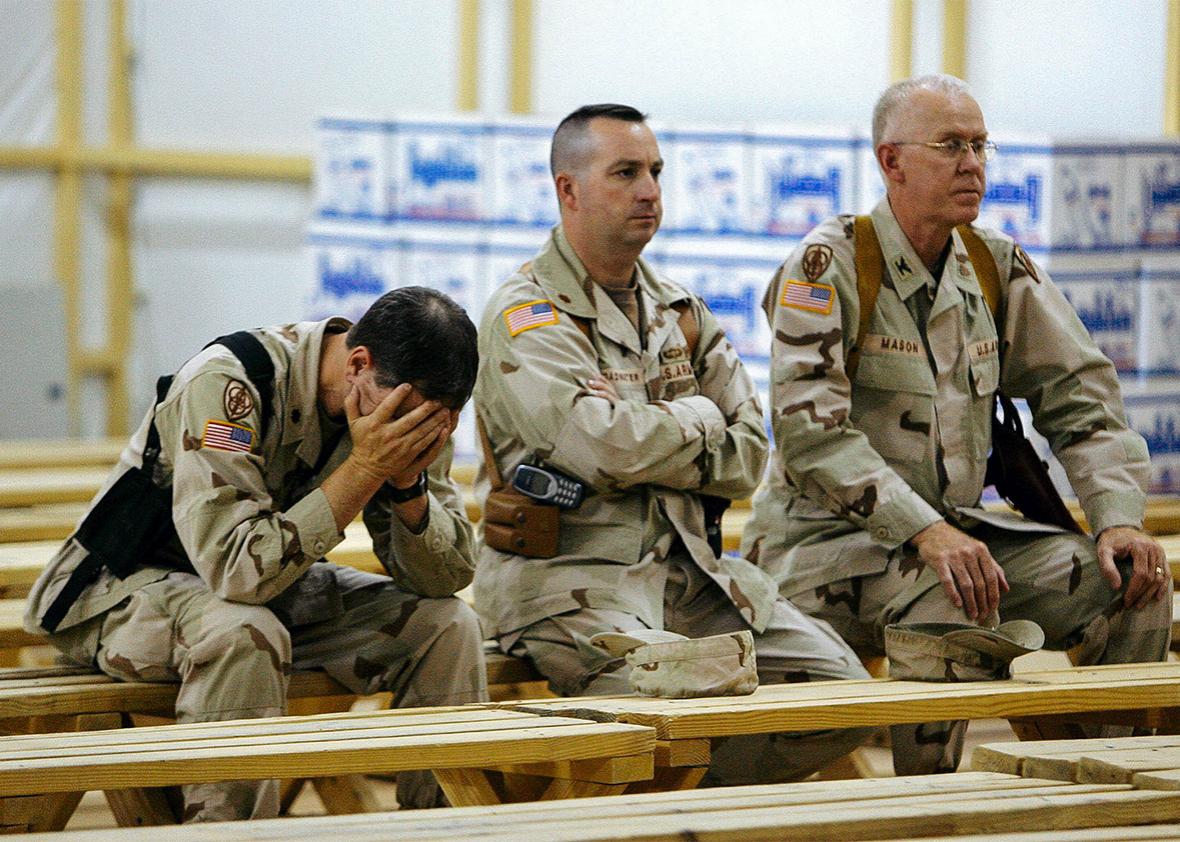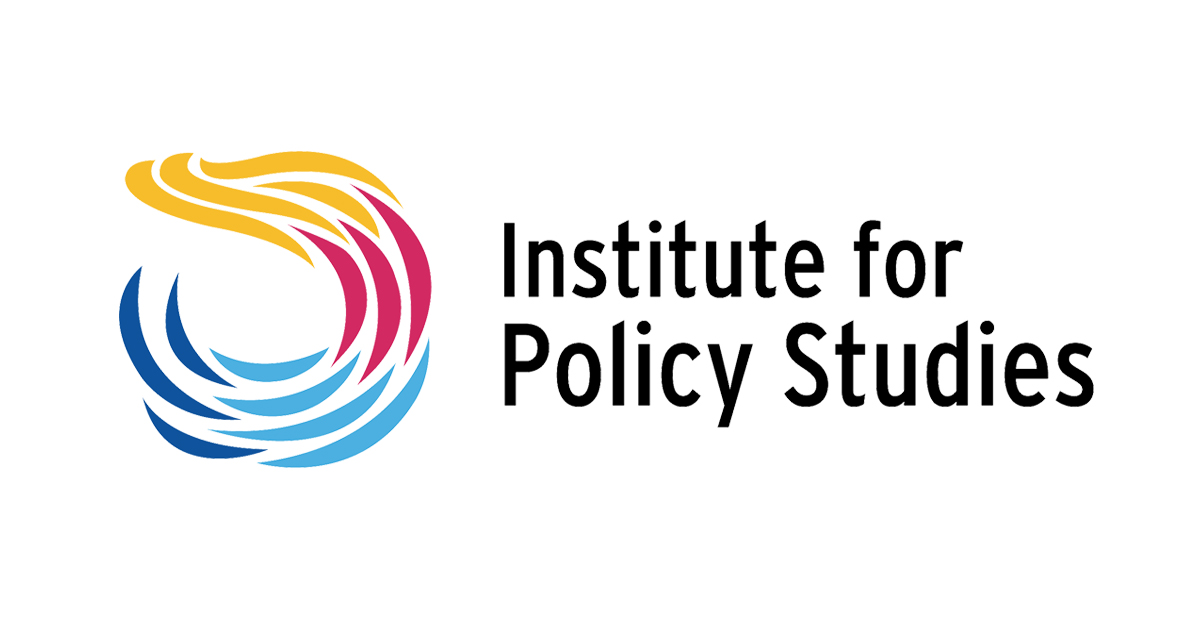Part XLV
Colour Revulsions
Lebanon
On February 13th 2005, Rafic Hariri and 21 others were killed when a massive bomb hidden inside a van parked on Beirut’s bustling seaside promenade was detonated, just as the former Lebanese Prime Minister and his six-car motorcade passed by.
Hariri who served as Lebanon’s Prime Minister from 1992 to 1998 and again from 2000 to 2004, played a central role in reviving the nation's battered fortunes, playing a central role in brokering the agreement that ended the countries 15-year long civil war, and delivering Beirut’s subsequent reconstruction and its economic revival.
The massive attack blew off balconies, demolished 20 cars, and send hundreds more to the hospital. The shock was palpable, Hariri had only resigned mere months earlier amid rising tensions between the government and the opposition who were against continued Syrian involvement in the country and specifically the Syrian move to extend the term of office of pro-Syrian President Emile Lahoud. His outspokenness against the manoeuvre triggered his resignation.
(Left to Right) Deceased Former Prime Minister Rafic Hariri, site of Hariri bombing
Quickly anti-Syrian forces pinned the blame for Hariri’s death on Syria, the Druze Lebanese opposition leader Walid Juumblatt alleged that the Syrian President Bashar al-Assad had personally threatened Hariri saying that
“If you and others want me out of Lebanon, I will destroy you”. Hariri had clearly fallen out with Syria and recently he was adding to the growing calls for the withdrawal of Syria’s 15,000 troops that were initially invited into the country to provide security in 1976. However, the hand of Syria and the ruling Assads family continued to hover over the country seemingly indefinitely. President Lahoud personally blamed Hariri for sparking unrest by petitioning world leaders to demand full Syrian withdrawal.
President Assad added to the chorus of mourning saying
he “condemned this horrible criminal action” while also urging the Lebanese to reject those who were
“planting schism among the people”. While TV cameras continually displayed the horrifying wreckage including scenes of burning victims and blood running down bystanders' faces.
The international reaction was similarly poor, and Hariri’s death provided a clear signal for many countries to formally back the Syrian opposition's demands of withdrawal, some even joined the opposition, in questioning possible Syrian involvement in the ‘hit job’, on Hariri the White House Press Secretary Jennifer Palmieri condemned the attack as a
“reminder for the world that the Lebanese people are not free from political violence, and foreign occupation”, and senior officials were clearly angered including Secretary of State George Mitchell who voiced his opposition
“Syrian presence has become destabilizing for the country, and [Hariri’s death] is only going to make the situation worse”.
The United Nations Security Council was called to discuss the bombing and jointly condemned both the bombing and Syria’s remaining role in Lebanon (though Syria was not blamed for the assassination). The United States long-held poor relations with Syria, both the Clinton and Bush administrations resisted efforts to renew negotiations, owing to Syria’s failure to cooperate in the extradition of terrorists, support the U.S. anti-Iraq policies and its continued cooperation with pro-Palestinian groups like Hezbollah and Hamas, and in the final months of the Bush administration National Security Advisor Condoleezza Rice branded the country an
“outpost of autocracy”.
Huge crowds of mourners came out onto the street many brandishing flags that targeted their neighbours in Damascus reading,
“Syria out” or
“We don’t want you”. The procession was more extensive than expected and Islamic traditions were broken as thousands of weeping female mourners also came out. But the tears mixed sorrow with anger as many blamed the government for his death either indirectly by not providing sufficient security or a more malicious direct role. Well over 100,000 people wearing the many opposition stripes stood together in acts of solidarity
"Brothers, we must all grieve together," one imam told the mourners. It was a clear sign that the Sunnis were moving toward the opposition alongside the Christians and Druse. Michael Young, a Lebanese editor, said that the legitimacy of the Lebanese government and the Syrian presence was also fading
“the dissatisfaction is growing and becoming a very big deal”.
(Left to Right) Syrian President Bashar Al-Assad, Hariri Mourners/Protesters
The protests and international queries meant the Lebanese government was facing mounting pressure to track down the assassins (so far the main culprits were a hereto unknown terrorist organisation), pledging to work with UN investigators but insisted on leading the mission, and the Syrian government refused to involve itself accusing the west of leading
a “campaign of intimidation” against them. While daily protests continued through February, hoping to deflect backlash, President Bashar Al-Assad again pledged that Syria would ultimately withdraw troops from Lebanon, but he delivered no timetable for the action and reporters noted that of the troops Syria had ‘withdrawn’ in the past many had been redeployed to the country.
On the 22nd of February, the United States and the European Union added to the pressure by signing a statement again calling for the withdrawal insisting on full compliance with previous UN treaties, it was all piling up pressure on Syria’s allies in Lebanon, demonstrations were banned though the bans were rarely enforced, military checkpoints were set up only for most to bypass them until finally, the government declared a crackdown on the 27th, and pro-government forces rallied in response,
“The Lebanese and Syrian are one beating heart, we cannot be separated” said one pro-Syrian protester
“we cannot be divided by Americans or Europeans”. And Hezbollah the powerful Shia organization pointed the finger at Israel for the trouble
“The Jews should forget about your dreams of Lebanon," Sheik Nasrallah, the Hezbollah leader said,
“Lebanon will not be divided”. Scuffles began to break out in Beirut as police forces attempted to break up protests and opposition newspapers were temporarily shut down for ‘inflammatory rhetoric’.
President Assad offered a consolation that Syrian troops would be totally withdrawn from Lebanon over 2 years, but still, no logistical timetable was provided, only infuriating protesters more.
“They are hoping the issue is forgotten, and they will silently drop the plan as they have done before,” said Waddah Shara a Lebanese professor. But protesters got angrier, shouts of ‘Kill the Lion’ (Arabic for Assad) were bellowed by students in Beirut’s Martyrs Square who encamped themselves similar to the Ukrainian protesters over the winter. But the pro-Syrian factions held firm buoyed by the large counter-protests organised by its allies, and the government pledges of reform to diffuse the situation that included new elections in the spring.
Perhaps more important than the opinion of western leaders, Arab leaders were split over the decision, including the Saudis who supported some remaining Syrian forces, worried that a total withdrawal could lead to a return to civil war. While Shia-ruled Iran and Sunni-ruled Iraq took hard-line stances against and for the withdrawal.
In March, violence escalated, prompted by fears/rumours of assassinations several opposition members (Including Hariri’s family) fled the country, Hezbollah demonstrated outside the American embassy and several harsh Syrian critics were targeted for beatings and intimidation. It became common for students closely associated with the protests to be kidnapped in the night, whisked to Syria by security forces and then face potential arrest or torture. But still, one month on from the bombing, on the 14th of March hundreds of thousands of Lebanese rallied, chanting for
“Freedom, Sovereignty, Independence” in the largest display of Lebanese protest ever. Security forces lined the streets ensuring that demonstrators didn’t overstay their welcome.
(Left to Right) Pro-Syrian protests, Anti-Syrian protests
The following day, however, President Assad, once praised as the herald of a new era of reform, the soft-spoken western-educated ophthalmologist, demonstrated his total control over the nation. He pledged to follow the two-year withdrawal, even conceding to removing 4,000 troops from the country immediately and shifting thousands more to the east of the county, but he followed it up with a boisterous address where he pledged his nation would never fold to international demands
"We must be steadfast in facing this foreign accusation. We don't want to mention names, but you know who I'm talking about." (Differing analysts couldn’t decide if this was Israel, Iraq or the United States) he again refused cooperation with UN investigators, and a sent a warning to the Lebanese protesters
“those who stand side-by-side with foreigners” he said to an enraptured parliamentary audience,
“are being controlled by foreigners and have no legitimate demands”. The legislators replied in chorus
"Our blood and our souls we sacrifice to you, oh Bashar!".
Following his testament, a further wave of repression ran through Lebanon as hundreds were arrested and detained without charge, the Druze opposition leader Walid Jumblatt confided to the press that he expected that Syria’s decision to continue to prop up the government would lead to further death
“unfortunately I expect the [the number of dead ] to increase, but we will not be intimidated … The Syrians will continue their occupation, but the difference is, is that now Lebanese are united”. The next day as protesters tried to tear down a statue of Bashar’s father Hafez Al-Assad, a clash broke out with pro-Syrian militia, that left one man dead.
Posters of Syrian President Assad
Kyrgyzstan
“The deformed democracy that exists in our country is deforming our conscience”, were the harsh words of the former diplomat turned opposition politician Roza Otunbayeva
“The President in constructing a monarchic dynasty in our civilised republic,” she told the BBC’s Asian service.
“I believe that our country needs change, a peaceful revolution, one not associated with killing or looting; a proper transfer of power”.
But a proper transfer of power was not what Kyrgyzstan would be about to face, similar to other post-soviet regimes, the country's President, Askar Akayev gained his office in the immediate aftermath of the nation's independence. He was selected as a compromise candidate in the vein of the reformist-minded Gorbachev, a communist who adopted free market principles and endeared himself with western liberals for turning the country into a centre of investment dubbing Kyrgyzstan the
“Switzerland of Central Asia”.
But, it was quickly evident that his strong-man tactics were rising to the surface, dominating politics, tightening central control of the government while insulating himself and his allies from the rule of law, all the western investments quickly swamped his pockets and a series of sham elections demolished any façade of democracy.
On his remaining opposition, Akaev brought down the hammer, shutting down all opposition newspapers and printing houses, blocking unfavourable businesses from operating and regularly imprisoning critics on trumped-up charges. In 2002 it came to a head when the continued collapse of the economy sparked protests in small towns, protests that the government crushed, leaving 5 dead in a street battle between police and marchers in a marketplace. Akaev called the protesters “
treasonous … Their actions are a mutiny”. And the uproar only made him double down on his authoritarian nature.
Kyrgyzstan President Akaev
He eliminated all remaining press freedoms, allowing only government-controlled outlets to function, police were armed and trained (in Russia) and he handed out punitive punishments for dissent. He also attached himself heavily to Russia, striking a tone of enthusiastic endorsement when it came to cooperating with the Russian military, and forging an economic union he also shared Russia’s opposition to the protest movements in Georgia and Ukraine. In the aftermath of the Russian Plane Attacks, he enthusiastically supported the military efforts in Afghanistan, granting Russia 3 air bases to direct its air campaign. As well as using the opportunity to brand his domestic enemies as terrorists on top of criminals.
In the winter of 2004 and 2005, Akaev in his 16th year of rule, showed little sign of forfeiting his grasp of power even as his country continued to slump into desperate poverty. The opposition took note of other countries' tactics and prepared to contest this year’s elections hoping to spur an uprising. Opposition figures like Roza approached foreign press, denounced the tactics of Akaev including his barring his enemies from registering and pointed out that Akaev was blatantly favouring his allies and family members through electoral manipulation. Akaev countered, accusing opposition groups of
“fomenting unrest” by appealing for western aid and following a visit to Russia, Russian troop numbers doubled in the country following a deal providing energy rights to the Russian company Gazprom.
Days before legislative elections, Akaev made news when he hinted that he intended to run for another term of office in spite of the constitution as long as the legislature supported him. It was enough to trigger protests in the thousands right on the eve of the elections, police responded quickly deploying tear gas and batons to break up the crowds. International organisations decried his actions and pleaded for
“political forces to only use peaceful means to resolve the election”.
The elections delivered the expected result, a triumph for the government delivering a supermajority for pro-government politicians. And it didn’t take long for more protests to break out, the ‘For Fair Elections bloc’ mobilized but so to did the police, demonstrators were quickly arrested, opposition offices and houses were raided, government ministries reinforced and on March 3rd Roza Otunbayea was brought into custody on accusations of conspiring against the government. City-by-city scenes of revolt were coupled with scenes of brutal suppression, a bomb destroyed what was alleged to be an illegal anti-government publishing house. The greatest confrontation came when opposition leader Kurmanbek Bakieyev trying to replicate the Georgian and Ukraine effort led thousands to the parliament building in an attempt to forcibly enter the office only for armed interior police to confront them, opening fire killing over a dozen people wrapped in banners that demanded
“Freedom or death”.
In the aftermath a defiant Akaev congratulated his new supportive parliament and lambasted the opposition and protesters as
“instigators, who seek to defile this chamber and spill blood”, he appointed his new Prime Minister who happened to be his daughter Berment Akayeva and committed to continually serve as the countries head
“There will be no negotiation on this subject, we will not capitulate to drug gangs or revolutionary terrorists”.
(Left to Right) President Akaev, Kyrgistani protesters, arrested opposition leaders Roza Otunbayeva and Kurmanbek Bakieyev
Afghanistan
The balance of power had shifted, after over 8 years since the Islamic fundamentalist Taliban swept into power with their capture of Kabul, whose brutalist regime had spent years as the most powerful faction of the Afghan Civil War, opposed only by a small clique of northern warlords, was losing grasp. Sharia was their guiding law, and only by adhering to its rule prosecuting its vices and adhering to its virtues could
“the bleeding of the land be stopped”.
Its mystical and hardened commander Mullah Mohammed Omar was a Muhajed who fully embodied the Taliban's harsh justice and subsequently inspired fanatical loyalty in his footsoldiers. He led his men from the south of the country Kandahar to conquer his many enemies on a crusade he insisted was ordered by the prophet himself. He brought the country under his rule, perhaps more successfully than almost any other Afghan in history.
He sympathised with terrorist leaders including Osama Bin Laden and his successors, Zarahiwi and Atef granting them the ability to construct training facilities and bases from which they plotted to attack their enemies including Russia and the United States.
Taliban Leader Mullah Mohammed Omar
Following numerous attacks by terrorist organisations. Including the horrifically deadly Russian Plane Attacks, many governments of the world were convinced that the situation in Afghanistan was too dangerous and needed to be rectified, a coalition of countries including, The United States, Russia, The United Kingdom and Australia began providing direct military support to the Northern Alliance.
There had been an undercurrent within the Taliban hierarchy that perhaps the jihadist groups should be cut off and expelled from Afghanistan, several of Omar’s councils demanded he do so, but Omar consistently rejected the advice, convinced that if he were to do so he would be breaking Islamic law by expelling a guest and it would be dishonouring the martyred Osama.
Perhaps it was a misjudgement or overconfidence. His belief that the anti-terror coalition could be outlasted as he had outlasted the Soviets had but once the airstrikes and bombing runs began, much of the Taliban's crucial infrastructure was torn down instantly, weapons caches, radar stations, airfields, barracks, communications systems, command centres, ministries and bases, in some cases even the homes of Taliban hierarchy were struck. All in the initial several hours and days.
Coalition aid and advice enabled the Northern Alliance to conduct a punishing advance through 2004 and early 2005 that threatened to collapse the entire Islamic Emirate, now only holding firm thanks to the burning conviction of their front-line soldiers.
The Taliban rushed troops from the south to reinforce the north of the territory, and their ranks were additionally bolstered by a torrent of Pakistani and Arab volunteers, the forces went to Kabul and set to work on the capitals defences, their remaining tanks, and artillery were buried into the ground to hide them from planes. Trenches and command posts were erected vast bunkers were dug to store ammunition, up to 14,000 troops set up machine guns, snipers' nests and mortar brigades to defend the city. He also called upon Al-Qaeda to send its squadron of fighters the ‘brigade’ to join under the dreaded Commander Dadullah.
On the other side, fresh from their victory, Northern Alliance Chief Massoud dispatched his close advisor and Army Chief of Staff Bismillah Khan to command the troops from the Bagram Airfield that they had captured with coalition assistance days ago. Setting up rocket artillery that threatened to once more terrorize the city.
It was dawning on everyone, the scale of the potential slaughter in front of them, if Taliban fighters fought as they had in Kunduz or Mazar Al-Sharif the city would be demolished by the scale of the bombardment and the weeks of urban fighting that followed. Reports from the Taliban were equally grave, a pitched battle would cost the group thousands of its loyal forces and the fight to date had given an
“extremely fearful picture to all Taliban. The bombs cut down our men like a reaper harvesting wheat.”. And fear rippled through the ranks.
(Left to Right) Taliban fighters in Kabul, Northern Alliance fighters north of Kabul
But Omar, at a called meeting of Taliban leadership, said it was imperative they hold the city, disregarding calls for an organised retreat further south, he believed that the Americans would not attack the city, as they had with others
“they could not swallow all that blood” was a phrase that was supposedly uttered, and that defending Kabul was imperative to keep control over the rest of their territory. If they fled the capital and abandoned it to the enemy, wavering warlords would flip and recognise the Alliance as the legitimate government.
Instead, Omar insisted they would enter negotiations to withdraw from the city and debate the future of Afghanistan that could include a cease-fire and some form of power-sharing (proposals similar to those considered 5 years ago).
There were several backers of peace, Pakistan, the Taliban's greatest supporter had no interest in seeing it totally routed and replaced by Massoud and the Tajiks who they saw as enemies of Pakistan, and the notorious ISI (Pakistans intelligence agency) continued to frequently communicate with the Taliban relaying support and tactical orders, while Pakistani President General Musharaff had supported a punitive campaign against terror groups, he had drawn the line at regime change and pressed for a ceasefire. Additionally, many facets of the U.S. government were not keen on a drawn-out conflict in the country, well aware of Afghanistan's history as the ‘graveyard of empires’ Secretary of Defence Hugh Shelton had closely studied America's history in south-east Asia and was not keen to drag the country into a quagmire
“The United States Army, is professional, for fighting conflicts, not peacekeeping or sitting on civil wars” and he held personal reservations that the American presence was in the national interest.
President Edwards was wary of high casualties by American bombs, telling his National Security Council that
“the goal is to degrade the Taliban’s politically, not more civilian deaths”. And within the Northern Alliance, many commanders and warlords held little interest in conquering the whole country and were keen to accept a Taliban withdrawal from the north and end the conflict, worried that invading the Taliban heartland and engaging the southern Pashtuns would be a fatalist move, Ronald Neuman the U.S. Ambassador to the Alliance recalled that most commanders of
“the Northern Alliance had no desire to travel further south than Kabul”. Many commanders and warlords were ready to adhere to the Afghan way of war, that once the fighting was over, there was a reconciliation. There was additional support for peace from the United Nations where Afghan diplomat Barnett Robin agreed that
“there needs to be room for the Taliban at the peace process”.
However, there were complications, other coalition members like Vladimir Putin’s Russia had vowed to
“completely smash the international association of bandits” and continued towing the Russian line against negotiations, British Prime Minister Tony Blair had spoken harshly about the need to cut off diplomacy with the Taliban and was supportive of total regime change
“They need to surrender the terrorists and surrender power”. Along with other Northern Alliance members and anti-Taliban groups that held unresolved grievances.
But of course, there was the loudest and most critical voice in the matter, the Northern Alliance’s military head Ahmed Massoud.
Massoud had a long memory and was by now an impassioned student of history, he had read Mao’s writings during the Long March, studied the storied careers of Che Guevara and Fidel Castro, and poured over the sage doctrine of Sun Tzu and knew well from his histories and personal experience that the cornered enemy was at its most dangerous. Despite their long violent history as mortal enemies, despite their declared jihad against him and the numerous attempts on his life, he would be willing to talk peace with the Taliban. Afghan Colonel Ahmed Hayat tried to warn Massoud against it, reminding him of the Taliban’s duplicity but Massoud told him
“God has been favourable to us, he has granted us victory in the most difficult circumstances, god has granted us success and now a period of peace must follow, after all, peace allowed the Prophet to conquer Mecca”.
Northern Alliance Leader Ahmed Shah Massoud
... Somewhere in Oman
“Something is brewing, something in Kandahar” The tent went silent. Kandahar the spiritual capital of the Taliban movement was a well-defended stronghold where the Taliban still held a strong grasp over the country. Sending a Marine there was impossible, there were no armies to ally with, no warlords from whom you could seek refuge, and the vast Pashtun area was no man's land. “Anyone interested in a mission?” We looked down at the pieces of paper, just names, no pictures Abdul Haq, Rahim Wardak, Mohammed Karzai, we never heard of them but all of us guessed they were some warlords. “These are living, breathing, Pashtuns who are against the Taliban, and we are going to be helping them out. Gentlemen welcome to the headquarters of the Southern Alliance”...







